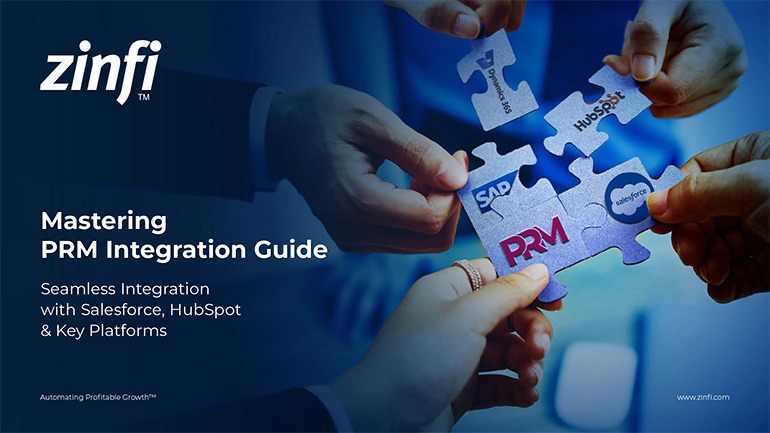Glossary - How to - Channel Partner Marketing Strategies
How to Develop Effective Channel Partner Marketing Strategies?
Introduction
In today’s competitive business landscape, companies depend on channel partner marketing strategies to expand their market reach, drive sales, and enhance brand visibility. Channel partner marketing involves collaboration with third-party resellers, distributors, affiliates, and other intermediaries to promote and sell products or services. These strategies can amplify a brand’s presence and revenue.
From a Partner Relationship Management (PRM) perspective, channel partner marketing is crucial in automating workflows, tracking performance, and ensuring alignment between vendors and partners. With the right tools and platforms, businesses can create seamless, data-driven marketing programs that maximize partner engagement and optimize sales efforts.
Key Takeaways:
Establish Clear Goals and KPIs:
It is essential to define clear objectives and key performance indicators (KPIs) to create an effective channel partner marketing strategy. These goals measure success and optimize campaigns. Some KPIs include:
- Partner-generated revenue
- Lead conversion rates
- Partner engagement levels
- Market penetration
Aligning these goals with your overall business strategy ensures consistency and a focused approach to channel marketing.
Select the Right Partners:
Choosing the right channel partners is crucial for a successful marketing strategy. Businesses should evaluate potential partners based on the following criteria:
- Industry expertise and market presence
- Alignment with company values and goals
- Sales capabilities and track record
- Willingness to collaborate on marketing initiatives
A Partner Relationship Management (PRM) platform can help streamline the partner selection process, providing data-driven insights into partner performance.
Develop Comprehensive Partner Enablement Programs:
Successful channel marketing strategies require partners to equip the right tools and resources. A structured partner enablement program includes:
- Sales training and certification
- Co-branded marketing materials
- Access to lead generation tools
- Marketing automation support
Providing partners with these assets ensures consistency in messaging and improves their ability to market and sell your products effectively.
Implement a Co-Marketing Strategy:
A well-structured co-marketing plan benefits both vendors and partners. Key components of co-marketing strategies include:
- Joint content creation (e.g., blogs, webinars, case studies)
- Social media collaborations
- Paid advertising and co-funded campaigns
- Localized marketing initiatives
Using a PRM platform to manage co-marketing activities can enhance efficiency and track engagement levels.
Leverage Data and Analytics for Optimization:
Marketing success relies heavily on data-driven decision-making. Businesses should utilize analytics tools to:
- Track campaign performance
- Monitor partner engagement
- Identify areas of improvement
Integrating a PRM system with analytics tools allows businesses to gain actionable insights and refine their marketing strategies accordingly.
Summary of Key Takeaways:
- Setting clear goals and KPIs ensures measurable success.
- Partner selection should align with company values and objectives.
- Partner enablement programs enhance sales effectiveness.
- Co-marketing initiatives drive brand awareness and lead generation.
- Data analytics play a crucial role in optimizing marketing efforts.
Key Examples:
- Automotive Manufacturing: Car manufacturers collaborate with dealerships and repair centers to promote and sell their vehicles. Channel partner marketing strategies in this sector include co-branded advertising, training programs, and local sponsorships.
- Consumer Electronics: Electronics brands leverage retailers and e-commerce platforms to expand their reach. Effective channel strategies involve joint promotions, exclusive product launches, and customer loyalty programs.
- Energy Production: Renewable energy companies partner with installation firms and government agencies to drive adoption. Co-marketing campaigns emphasize sustainability benefits and cost savings.
- Financial Services: Banks and insurance firms work with financial advisors and brokers to expand their client base. Digital co-marketing campaigns and educational webinars are some commonly used strategies.
- Food and Beverage: Food manufacturers partner with distributors and supermarkets to increase market penetration—joint advertising and special discounts help reach a wider audience.
- Healthcare Services: Medical device companies collaborate with hospitals and pharmacies for product distribution. Partner training programs and joint promotional events improve brand credibility.
- Information Technology: IT vendors partner with system integrators and managed service providers to offer tailored solutions. Co-branding and targeted content marketing help in lead generation.
- Pharmaceutical Development: Pharmaceutical firms work with healthcare providers and pharmacies to market medications. Educational campaigns and compliance training are essential components of channel strategies.
- Retail Industry: Retail brands partner with franchises and online marketplaces to enhance sales. Loyalty programs and omnichannel marketing strategies drive customer engagement.
- Telecommunications: Telecom providers collaborate with resellers and service providers to expand network coverage. Promotional offers, bundled services, and localized campaigns boost subscriber growth.
Conclusion:
Channel partner marketing strategies are a powerful way to scale businesses, drive revenue, and strengthen brand visibility. Companies can build successful channel programs by setting clear goals, selecting the right partners, and leveraging technology for automation. Integrating PRM solutions ensures seamless collaboration, real-time performance tracking, and improved partner engagement.
Investing in co-marketing initiatives, providing robust partner enablement programs, and using data analytics to refine strategies are key steps toward channel marketing success. No matter the industry, an optimized approach to partner marketing can yield significant competitive advantages.
Associated Keywords:
- Channel Marketing Best Practices
- How to Improve Partner Engagement
- Co-Marketing Strategies for Channel Partners















